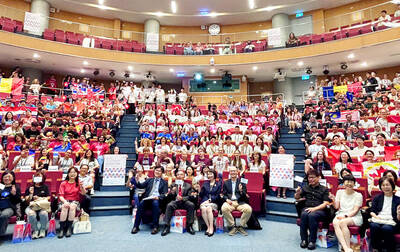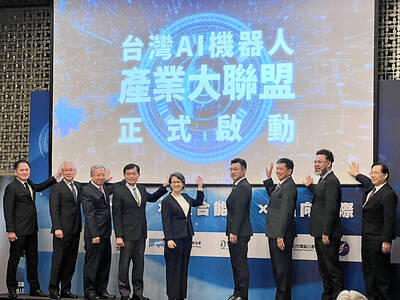Cisco and British telecom giant BT Group announced a partnership on Wednesday aimed at a growing hunger by businesses worldwide for Internet-based communications services.
The companies launched a global Internet telephony service that they said lets businesses dramatically reduce upfront costs and positions firms to add video and data handling features to desktop phones.
“There is a clear demand for this,” said Nick Earle, senior vice president of Cisco’s European Services Organization. “The economic downturn has accelerated the demand for private cloud solutions out there.”
Private cloud solutions are computer applications or services designed for particular businesses or organizations but hosted online.
Such cloud services are typically paid for as they are used rather than burdening firms with the costs of buying, installing and maintaining the needed hardware or software.
“Enterprises want consumption-based pricing,” Earle said. “This actually meets the new budgeting model for CEOs.”
Cisco and BT will provide telephony systems that let users “pay as they go.”
The endeavor builds on services Cisco and BT have provided in Britain for about a year.
“In essence, we are taking that capability and making it global in tune with the market which is heading toward the cloud,” said Simon Farr, who leads Unified Communications and Collaboration Marketing at BT.
“It’s a significant launch. We are absolutely working hand-in-hand with Cisco,” he said.
Cisco and BT plan to offer the service in North America by early next year and then expand in Europe and into the Asia-Pacific region.
“Right now it is voice, but the architecture is built so we can add instant messaging, video, and telepresence into the desktop telephone over time,” Earle said. “It will become a hosted universal communications capability.”

TAIWAN IS TAIWAN: US Representative Tom Tiffany said the amendment was not controversial, as ‘Taiwan is not — nor has it ever been — part of Communist China’ The US House of Representatives on Friday passed an amendment banning the US Department of Defense from creating, buying or displaying any map that shows Taiwan as part of the People’s Republic of China (PRC). The “Honest Maps” amendment was approved in a voice vote on Friday as part of the Department of Defense Appropriations Act for the 2026 fiscal year. The amendment prohibits using any funds from the act to create, buy or display maps that show Taiwan, Kinmen, Matsu, Penghu, Wuciou (烏坵), Green Island (綠島) or Orchid Island (Lanyu, 蘭嶼) as part of the PRC. The act includes US$831.5 billion in

‘WORLD WAR III’: Republican Representative Marjorie Taylor Greene said the aid would inflame tensions, but her amendment was rejected 421 votes against six The US House of Representatives on Friday passed the Department of Defense Appropriations Act for fiscal 2026, which includes US$500 million for Taiwan. The bill, which totals US$831.5 billion in discretionary spending, passed in a 221-209 vote. According to the bill, the funds for Taiwan would be administered by the US Defense Security Cooperation Agency and would remain available through Sept. 30, 2027, for the Taiwan Security Cooperation Initiative. The legislation authorizes the US Secretary of Defense, with the agreement of the US Secretary of State, to use the funds to assist Taiwan in procuring defense articles and services, and military training. Republican Representative

Taiwan is hosting the International Linguistics Olympiad (IOL) for the first time, welcoming more than 400 young linguists from 43 nations to National Taiwan University (NTU). Deputy Minister of Education Chu Chun-chang (朱俊彰) said at the opening ceremony yesterday that language passes down knowledge and culture, and influences the way humankind thinks and understands the world. Taiwan is a multicultural and multilingual nation, with Mandarin Chinese, Taiwanese, Hakka, 16 indigenous languages and Taiwan Sign Language all used, Chu said. In addition, Taiwan promotes multilingual education, emphasizes the cultural significance of languages and supports the international mother language movement, he said. Taiwan has long participated

Taiwan must invest in artificial intelligence (AI) and robotics to keep abreast of the next technological leap toward automation, Vice President Hsiao Bi-khim (蕭美琴) said at the luanch ceremony of Taiwan AI and Robots Alliance yesterday. The world is on the cusp of a new industrial revolution centered on AI and robotics, which would likely lead to a thorough transformation of human society, she told an event marking the establishment of a national AI and robotics alliance in Taipei. The arrival of the next industrial revolution could be a matter of years, she said. The pace of automation in the global economy can